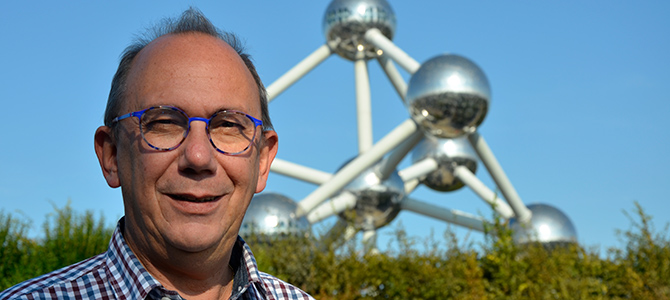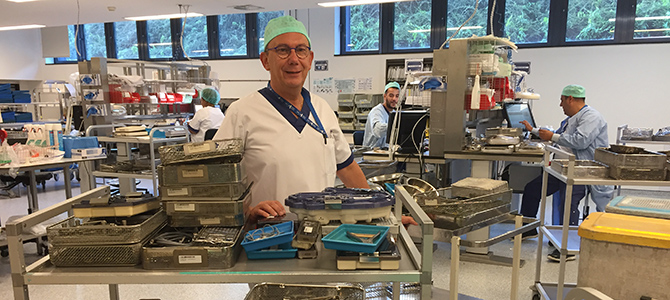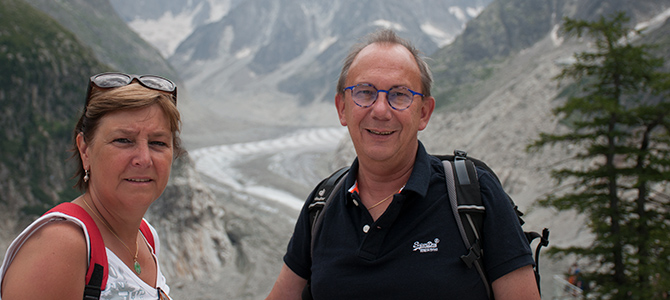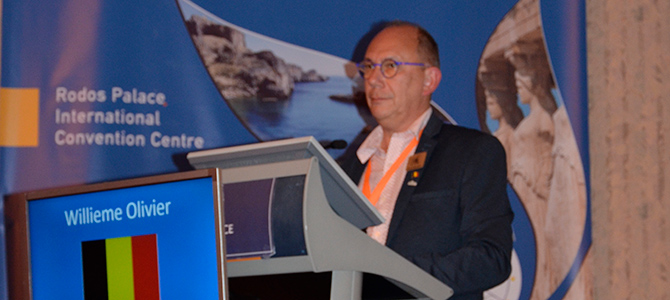Nursing in Belgium: Global Collaboration, Local Improvement
By: Aorn Staff
Published: 4/6/2022
Nursing in Belgium: Global Collaboration, Local Improvement
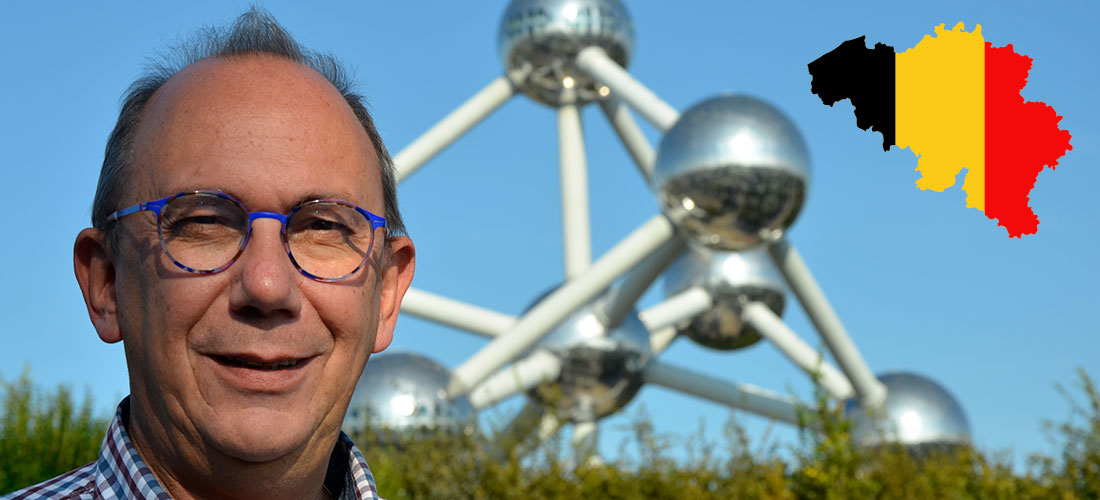
This is the first post in our series taking a closer look at what it means to practice perioperative nursing in countries around the world. We’ll look at how our perioperative nursing colleagues work within different types of health care systems, develop their career trajectory, and face the daily challenges of nurse/life balance.
For our first interview, we chatted with Olivier Willième, 56, a perioperative nurse in Belgium with 34 plus years of experience, including 20 years as an OR manager. He is now the manager of the central sterile processing department at the Erasme University Hospital in Brussels. Here, he talks about his role as "coach," the Belgium education system, and the importance of a global perioperative community.
On Professional Development
Leading sterilization team members in this large academic center with 864 beds and 20 operating rooms offers exciting challenges. My staff oversees sterilization services for more than 1,500 different instrument trays, handles 7,000 instrument references, and annually produces 5,000 autoclave or low-temperature sterilization loads (75,000 trays and peel-packs).
I’ve recently transitioned from patient care to sterile processing in my professional journey. It’s something I felt well-equipped for, given my vast experience on the patient care side of surgical services.
It’s important to always remember that behind each sterile instrument there is a patient who will receive the care required under safe conditions. I see myself as a coach, supporting 30 sterile processing professionals, instilling listening, structure, information, and training.
We encourage co-workers to evolve in a professional environment where each behavior must be "solution-oriented," and where autonomy and trust must replace negative judgments.
On Education
In Belgium, working in sterile processing does not require any special qualification except for a secondary school education diploma for sterilization assistants and a nursing diploma for nurses. The nursing diploma typically takes four years to complete for baccalaureate education. One additional year is required to earn a perioperative nursing diploma. During this additional year of full-time learning, perioperative nursing students learn in the classroom and the clinical setting.
For sterilization assistants and nurses, there is special training offered for practice in sterilization service, but it is not compulsory. So, I regularly conduct in-service training and regular assessments to identify training needs.
Education is also a focus for my own research, including a project to build a tool for continuous improvement of knowledge for OR nurses and the improvement of their supervision. I also regularly take part in Belgian federal-level projects, such as funding of nursing activity in the surgical environment.
On the Nursing Shortage
There is a shortage of nurses in Belgium, as in many other countries. The federal government has developed several tools to compensate for this shortage of caregivers. There is a federal program that allows 600 caregivers a year to access nursing education and continue to be paid. The government is also trying to reduce the number of hospital beds to comply with European directives and reduce the costs of the health care system.
On Being Multilingual
Belgium is a multilingual country – most people speak French or Dutch, some speak German. I was born in the south of the country where Dutch is not spoken and I do not speak it very well. My hospital is in a French-speaking part of Brussels, but when I meet my fellow Flemish nurses, we often speak in English.
On Nurse-Life Balance
In Belgium, a nurse generally works a 38-hour work week, and if you are a manager you sometimes work more. Family and spare-time activities are very important. I work a lot during the week and in the evenings I focus on presentations and professional association projects. On weekends, I go to the cinema, attend classical music concerts or pop festivals, meet friends, and read all kinds of literature. Sunday is devoted to walking in nature for three or four hours with my wife and our dog along the waterways. Together we try to attend one theater play per month.
On the Importance of a Global Community
Perioperative care is not organized in the same way in all countries because it complies with national rules, so gathering with experts through the European Operating Room Nurses Association (EORNA) is of great scientific and human benefit. Learning how nurses work across Europe has allowed me to bring back to Belgium relevant points of view to explore and put into practice.
Reading, listening, and exchanging ideas with colleagues from other cultures makes it possible to imagine other problem-solving approaches that can bring new perspectives to addressing challenges in your own practice setting. This makes it possible to understand that perioperative practice deserves a global approach to patient care and encourages a universal vision of our mission.
Since 2000, Willième has served on the board of directors for EORNA, which brings together 26 European countries. His involvement with EORNA has allowed him to learn from many nurses invested and involved in perioperative care, representing each country, their particularities, their cultures, and their specificities. Willième also serves on AORN’s Global Relations Committee. He will be attending the 2018 Global Summit in the U.S. in New Orleans next March.
Interested in hearing more international perspectives and learning about practice issues impacting perioperative around the world? Make plans to attend the global track education sessions at AORN’s annual conference.

